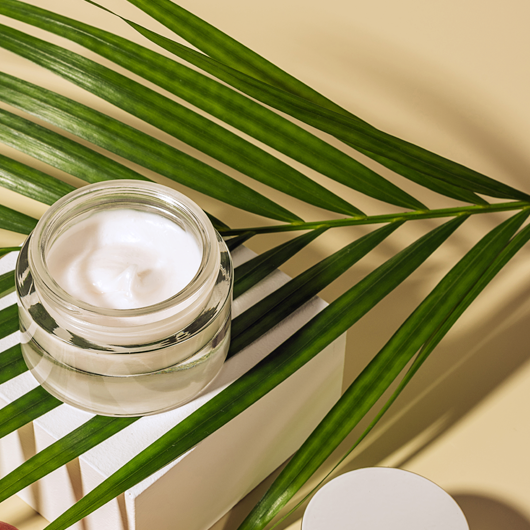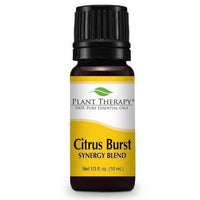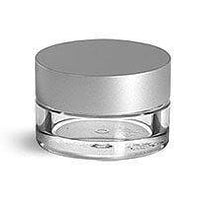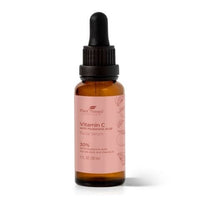Vitamin C
Vitamin C is a Natural Antioxidant
 Scientific Name: {Ascorbic acid, Ascorbyl Palmitate}
Scientific Name: {Ascorbic acid, Ascorbyl Palmitate}
Common Name: {Vitamin C}
Vitamin C is one of the best antioxidants used in skincare products. It is also the most available in many forms. In addition, it neutralizes age-promoting free radicals caused by oxidative stress and inhibits inflammation.
The power of vitamin C was first discovered by sailors on the ocean for weeks without fruit. But, even if they had all the necessary nutrients, they became very sick, even developing bleeding disorders and ulcers on the skin.
Researchers discovered that fruit was essential to the human diet and must contain some substance that our bodies find vitally important. Later, researchers found that this substance is vitamin C.
Though we rarely suffer from such an extreme lack of vitamin C in modern times, our bodies may fail to utilize it properly.
Using a product that contains vitamin C is hugely beneficial. It acts as one of the world's most potent natural antioxidants. Still, it is also naturally anti-bacterial, aids in collagen production, helps build the proteins the skin needs to regenerate, and stimulates blood flow.
Powerhouse Performance
In recent years, Vitamin C has become a star ingredient in the skincare world, and for good reason. This antioxidant helps brighten complexions. This potent nutrient offers a range of benefits when incorporated into topical skincare routines. Explore the wonders of Vitamin C in this article and highlight three key benefits it provides for the skin.
-
Brightening and Even Skin Tone: Uneven skin tone, dark spots, and hyperpigmentation are common concerns for many individuals. Vitamin C is known for its skin-brightening properties, as it inhibits melanin production, the pigment responsible for skin color. By suppressing excessive melanin production, Vitamin C helps fade dark spots and discoloration, revealing a more even and radiant complexion. With consistent use, it can also prevent the formation of new pigmentation irregularities, resulting in a more uniform and luminous skin tone.
-
Collagen Boost and Firmness: As we grow older, the collagen production in our skin decreases, resulting in the formation of wrinkles, fine lines, and sagging skin. However, Vitamin C emerges as a key player in boosting collagen synthesis. It actively participates in the enzymatic conversion of proline and lysine into collagen fibers, which maintain the skin's structure and elasticity. The skin retains its firmness and resilience by ensuring an ample supply of Vitamin C. Incorporating Vitamin C topicals into your skincare routine regularly can help reduce the visibility of fine lines and wrinkles, leading to a smoother and more youthful complexion.
- Powerful Antioxidant Protection: Vitamin C is a potent antioxidant that helps combat the harmful effects of free radicals. A free radical is an unstable molecule. Remember 7th-grade science class? Unstable molecules can lead to premature aging. By neutralizing these free radicals, Vitamin C helps protect the skin from oxidative stress, promoting a youthful and radiant complexion. It acts as a shield, defending the skin against environmental aggressors.
Environmental aggressors
- UV rays
- Pollution
- Other sources of oxidative damage
Choosing the Right Vitamin C Skincare Products
When incorporating Vitamin C into your skincare routine, choosing products that are stable and formulated effectively is essential.
Vitamin C can be unstable and prone to oxidation, diminishing its potency and effectiveness. Look for products that contain stabilized forms of Vitamin C, such as ascorbic acid, or its derivatives like sodium ascorbyl phosphate, magnesium ascorbyl phosphate, or ascorbyl glucoside. These forms are more stable and can penetrate the skin effectively. Additionally, consider the concentration of Vitamin C in the product, as higher concentrations are generally more effective, but they may also be more irritating for sensitive skin types. Gradually introducing Vitamin C into your routine and patch testing can help determine your skin's tolerance.
Top Benefits of Using Topical Vitamin C Serums:
- Brightening Effect: Vitamin C is renowned for its skin-brightening properties. It works to diminish dullness, bringing out a radiant and luminous complexion. Its ability to inhibit melanin production also makes it effective in fading dark spots and achieving a more even skin tone.
- Supports Collagen and Thin Skin: A key component in our skin's structure, collagen helps maintain skin's elasticity and firmness. Vitamin C boosts collagen production, ensuring skin remains plump, youthful, and resilient. This, in turn, aids in thickening thin skin, making it appear more vibrant and healthy.
- Evens Skin Tone and Reduces Spots: Pigmentation issues, including sun spots, age spots, and acne scars, can be addressed with Vitamin C. Its anti-pigmentary effect promotes an even skin tone, reducing the appearance of blemishes and marks.
- Inhibits Inflammation: Vitamin C possesses anti-inflammatory properties, helping to reduce redness, swelling, and discomfort in the skin. This is particularly beneficial for those with sensitive skin or inflammatory skin conditions.
- Minimizes the Appearance of Fine Lines and Wrinkles: One of the tell-tale signs of aging is the development of fine lines and wrinkles. Vitamin C's antioxidant properties combat free radicals, minimizing the damage they cause, and thereby reducing the visibility of fine lines and wrinkles.
- Incorporating Vitamin C topically in skincare products leverages all these multifaceted benefits, ensuring skin remains radiant, youthful, and healthy.
Premature aging can start when our skin is over-exposed to UVA and UVB rays from the sun. As a result, free radicals begin careening through the cells. This, in turn, produces more unhealthy cells.
This is one of the most vital processes of this ingredient, as it can minimize the appearance of wrinkles and other signs of aging caused by photodamage.
Vitamin C in Skin Care
The high concentration of antioxidants diminishes the appearance of wrinkles. Additionally, this, paired with its ability to boost collagen production, really helps firm and plump skin from inside your body.
Vitamin C is a natural skin lightener that makes skin look better and helps it appear brighter naturally.

As a natural anti-bacterial ingredient, vitamin C helps to combat blemishes. In addition, it helps improve the skin's ability to get rid of a pimple or expel the impurities that cause discolorations.
Most acne is caused by bacteria combined with our body's natural oils, which are trapped in a pore. Therefore, there is less chance that acne will develop by killing off this bacteria.
Vitamin C improves blood flow. As a result, the dermis can better fight off and protect your complexion. Further, this influx of blood renews a healthy face. In addition, this ensures that it is less susceptible to impurities.
Using a topical stable form of Vitamin C is especially best. If you have seen a serum that contains ascorbic acid or another unstable state, it may have been dark orange or brown. This means that it has oxidized and no longer works. MAP or magnesium ascorbyl phosphate is a stable form.
Healthy Diets and Antioxidants
Furthermore, incorporating Vitamin C into your diet can benefit the whole family. Adults get the antioxidant protection they need, and kids get more muscular bodies and respiratory systems.
One downside is that it is not stored in our bodies. Therefore, consuming foods high in vitamin C every day is necessary. This naturally occurring nutrient is easily obtained from dark leafy greens, the pulp of fruits, and everyday herbs.
Sources of Vitamin C:
- Fruits
- Vegetables
- Herbs
Here are just a few examples of where you can find this amazing antioxidant naturally:
Fruits:
- oranges
- plums
- pears
- apricots
- strawberries
- cherries
- raspberries
- guava
- black currant
- apples
- bananas
- blueberries
- grapefruit
- pineapple
- kiwi
- mango
- cantaloupe
- lemons
- limes
- tomatoes
- papaya
- watermelon
Vegetables:
- chili peppers
- Red and green bell peppers
- kale
- broccoli
- cauliflower
- Brussels sprouts
- celery
- cucumber
- cabbage
- bok choy
- parsley
- turnip greens
- beets
- leeks
- mustard greens
- collard greens
- Swiss chard
- romaine lettuce
- onions
- spinach
- asparagus
- potatoes
- sweet potato
- winter squash
- green peas
- green beans
- summer squash
- carrots
Herbs:
- basil
- chives
- parsley
- fennel
- thyme
- peppermint
- dill
Vitamin C has rightfully earned its place as a skincare superhero. With its potent antioxidant properties, skin-brightening effects, and collagen-boosting capabilities, this remarkable nutrient offers a range of benefits for the skin. Using Vitamin C in your everyday skincare regimen can help protect against environmental exposure, even skin tone, and promote a youthful complexion. Embrace the power of Vitamin C and unlock your skin's true potential.
So few other ingredients can boast such a wide array of benefits.
Why Vitamin C Gives Your Skin a Glowing Boost
Hey there, lovely readers! Today, we're diving into the world of Vitamin C – a superstar for your skin. Imagine Vitamin C as the magical potion that makes your skin shine like a star. Get ready to discover why Vitamin C is a secret treasure for your skin's health and glow!
The ABCs of Vitamin C
Okay, let's make it simple. Vitamin C is like the superhero your skin always wanted. It's like the juice from oranges and other yummy fruits that makes your skin look super awesome. And guess what? It's not just good for your tummy – it's amazing for your skin too!
The Glowy Magic of Vitamin C
1. Boosts Brightness: Imagine your skin is a sparkly jewel, and Vitamin C is the polish that makes it shine even brighter. It helps your skin look more awake, like a sun-kissed morning. So, if you want your face to glow like sunshine, Vitamin C is your best friend!
2. Fights Off Bad Stuff: Vitamin C is like a superhero shield that protects your skin from the bad guys, like pollution and yucky things in the air. It's like having a magical barrier that keeps your skin safe and healthy.
3. Helps Regenerate: Remember when you fell and got a little scrape? Vitamin C is like a cozy blanket that helps your skin regenerate itself faster. It's like a special hug for your skin, ensuring it stays strong and bounces back from anything.
4. Makes Skin Stronger: Imagine your skin as a puzzle; Vitamin C is the glue that holds all the pieces together. It helps your skin stay firm, like a super tough shield. So, even as you grow older, your skin stays radiant and strong.
Using Vitamin C Serum with Hyaluronic Acid
Okay, now it's time for the real magic! Our Vitamin C Serum combined with Hyaluronic Acid is like a bottle of happiness for your skin. Just a few drops can do wonders – it's like giving your skin a refreshing drink. This serum is like a superhero team-up – Vitamin C works its glowy magic while Hyaluronic Acid adds a big splash of hydration.
So, there you have it, the amazing world of Vitamin C for your skin. It's like having a secret potion that brings out your skin's natural beauty and glow. And don't forget, our Vitamin C Serum with Hyaluronic Acid is like having a superhero squad for your skin! If you want that radiant, glowing look, check it out and let your skin shine like a star.
References:
- Telang, P. S. (2013). Vitamin C in dermatology. Indian Dermatology Online Journal, 4(2), 143-146.
- Pullar, J. M., Carr, A. C., & Vissers, M. (2017). The roles of Vitamin C in skin health. Nutrients, 9(8), 866.
- Farris, P. K. (2005). Cosmetical vitamins: Vitamin C in skin care. Dermatologic clinics, 23(1), 69-73.
Ready to give your skin that Vitamin C boost? Check out our Vitamin C Serum with Hyaluronic Acid and let your skin glow with happiness!








